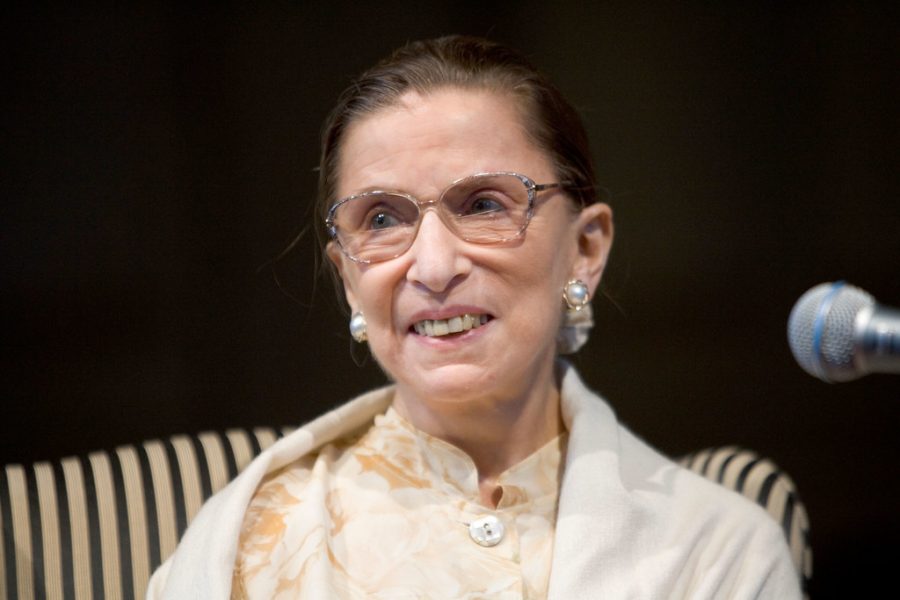Remembering Justice Ruth Bader Ginsburg
Photo by: ©WFU/Ken Bennett
“Associate Supreme Court Justice Ruth Bader Ginsburg Visits WFU” by WFULawSchool is licensed under CC BY-NC-ND 2.0
Supreme Court Justice Ruth Bader Ginsburg (RBG) died at 87 on September 18, 2020. Most well-known as a pioneering advocate for women’s rights, Ginsburg earned the title of Supreme Court Justice, making her the second woman in history to do so. The accomplishments of her life will live far longer than herself.
As a Columbia Law School graduate, Ginsburg began her legal career as a volunteer attorney for the American Civil Liberties Union (ACLU). From there, she was appointed to the U.S. Court of Appeals for the District of Columbia Circuit, where she served until her appointment to the Supreme Court in 1993.
What made Ginsburg’s seat on the Supreme Court so meaningful is that in a lot of cases, she determined the outcome of the decision. Starting as a moderate judge, RBG shifted left as the rest of the court shifted right. Some of her most valuable cases concerning gender discrimination and abortion rights include United States v. Virginia, overturning the previous male-only admission policy of the Virginia Military Institute, as well as Stenberg v. Carhart, which struck down a Nebraskan law making partial-birth abortions illegal.
In addition to that, Ginsburg is credited with the inspiration of the Lilly Ledbetter Fair Pay Act. In 2007, the occurrence of the Ledbetter v. Goodyear case, in which Ledbetter filed a case against her employer for the discrimination she was experiencing on the basis of her sex, struck a fire in Ginsburg. In a 5-4 decision, the Court decided Ledbetter’s complaint had violated the statute of limitations.
Ginsburg found these results absurd, due to the fact that Ledbetter had not known she was getting paid less until after the deadline had already passed. Ginsburg called upon Congress to undo the Court’s decision. Then, following the election of Barack Obama in 2008, the Lilly Ledbetter Fair Pay Act was passed. This act made the statute of limitations regarding an equal pay lawsuit resets after each paycheck, preventing outcomes such as the one from Ledbetter v. Goodyear.
Concerns on the left have arisen in what Ginsburg’s death will mean to the Supreme Court. President Donald Trump pledged to replace RBG’s seat with another woman after her passing, and with the nomination of Amy Coney Barrett, the pledge rings true. Barrett has served on the U.S Court of Appeals since 2017 at the appointment of President Trump.
Having a conservative Justice on the Supreme Court would end the era of majority left-wing justices. Before RBG’s passing, the Supreme Court had a split of 5-4. Trump’s appointment of a conservative Justice would completely reverse the dynamic between them. The left is fearful that the appointment of a conservative Justice could result in rollbacks of Roe v. Wade, the court case during 1973 which granted the constitutional right to terminate pregnancies in the name of bodily autonomy.
Justice Ruth Bader Ginsburg has truly made an impact both inside the court and out. Her legacy consists of a generation of pioneering advocates breaking the social norms and delivering justice in whatever way they can. Ginsburg now rests in power in the Arlington National Cemetery. Previously, she laid on the steps of the Supreme Court, then moved to the Capitol Building, making her the first woman to do so.







